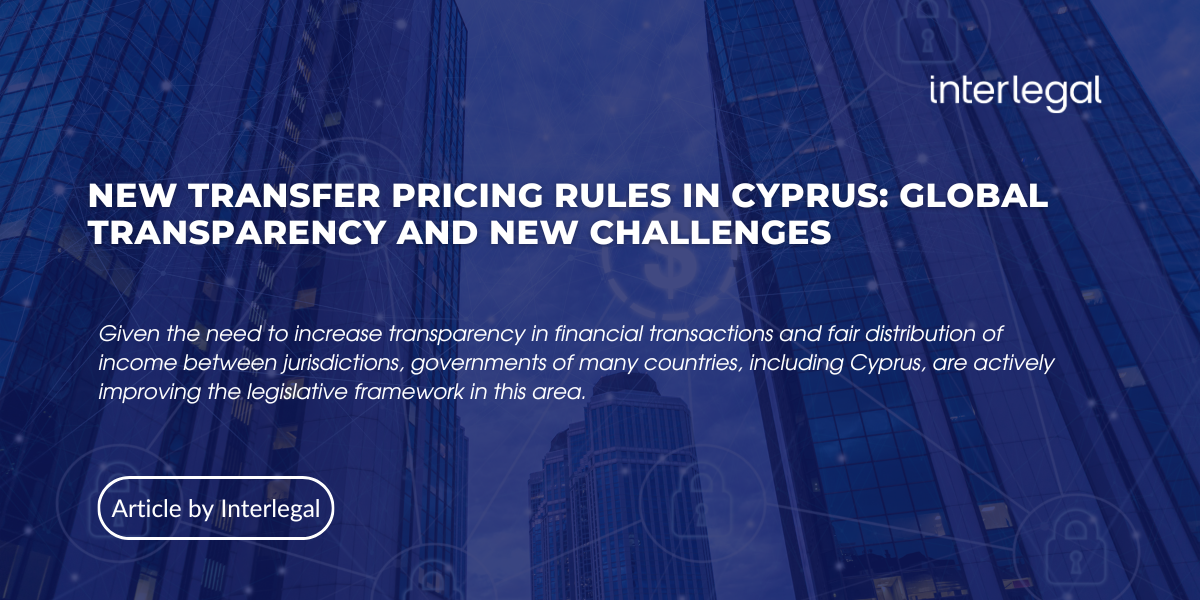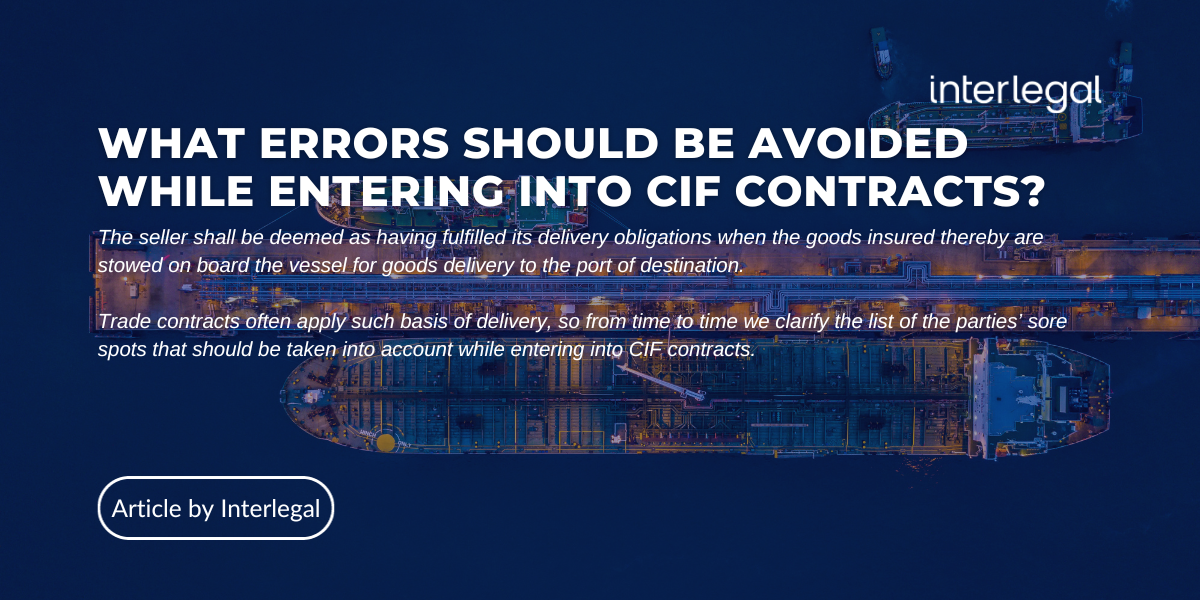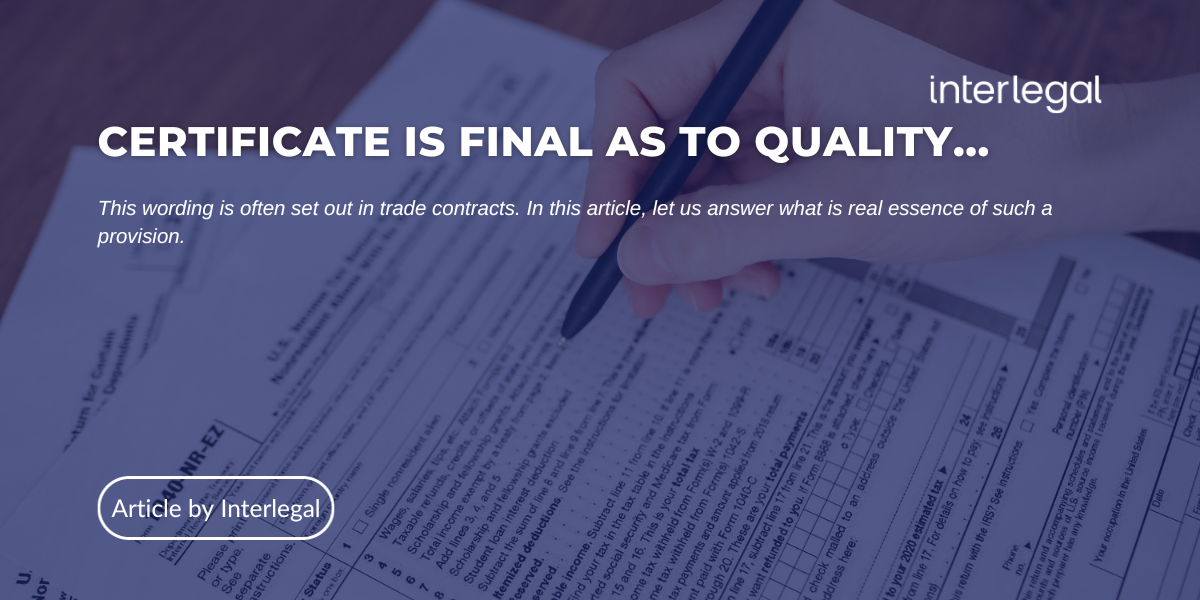How to buy property in Cyprus as a non-resident
9 August, 2018
2
Immovable property in Cyprus is highly sought after. A large part of Cyprus’ appeal lies in its wonderful climate and ecology and its promise as one of the safest places in the world, as well as its English-speaking environment. Russian is also very widely spoken. Yet, one of the main reasons for seeking property investment is that, currently, property acquisition in Cyprus allows the investor to obtain full citizenship of an EU-member state.
Having EU citizenship grants unrestricted rights to live, work, travel, study, own and operate a business anywhere in the EU. Obtaining EU citizenship through Cyprus is especially ideal, as no there is no dividend tax on worldwide income for non-domiciled tax residents due to numerous double tax treaties signed by the Cypriot Government, and Cyprus has a very low rate of corporate income tax. The Cypriot passport acquired from obtaining EU citizenship enables visa-free travel to 157 countries, and also allows for dual citizenship. The EU citizenship status will be granted to the applicant, their spouse, all financially dependent children up to the age of 28, and the applicant’s parents. There are some terms of obtaining this EU passport, however no other country in the EU offers citizenship as freely as Cyprus, and thus the terms are simple and clear.
A minimum investment of 2 million euros (excluding VAT) is required, and the investment only has to be kept for 3 years. The law requires mandatory acquisition of personal immovable property by each investor worth at least 500,000 euros, except where the investment is made in residential property or properties worth 2 million.
No donations are necessary, and neither are exams in history or the Greek language, which are common terms of granting citizenship in other countries. There is also no requirement to reside in Cyprus. Following this process, a Cyprus passport will be granted within only 6 months. Thus, investment in residential and commercial property with the aim of achieving EU citizen status is a common occurrence in Cyprus.
There are naturally some regulations and restrictions with regards to what properties you are able to purchase in Cyprus. These restrictions will often be dependent upon your citizen status. Previously, there were numerous restrictions on EU citizens when buying property, but in line with its EU accession Cyprus has now lifted some of these restrictions. As a result, EU citizens can now purchase an unrestricted amount of land and property in Cyprus. Similarly, a company with a majority of directors and shareholders who are Europeans or Cypriots can buy any amount of land and property as well. Non-EU citizens, however, do have some restrictions for purchasing. Non-EU citizens may only purchase up to two apartments, houses, or villas, if the areas upon which they are built or are being constructed do not exceed the size of 4.014 square meters (2 donums) provided that they will be used for residential purposes or as commercial property.
There is a standard procedure for buying property in Cyprus.
As buying property in Cyprus, whether for personal use or for investment purposes, is likely to be one of the most important financial decisions a client will make, it is understandable that price plays an important role in the decision. On top of the legal fees, there are some additional costs which will always be applied and remain at a relatively constant rate.
One of these additional costs is Stamp Duty. Once the agreement has been signed, it will be stamped at the tax office to show that the Stamp Duty applicable to the contract has been paid, and a copy of the sale agreement will then be deposited with the Land Registry. The Stamp Duty is €2.57 per thousand for purchase prices up to €170,860, and €3.42 per thousand for the part of the purchase price exceeding €170,860, subject to an overall cap of €20,000.
Another additional cost is transfer fees. Real estate transfer tax-fees must be paid in order to transfer freehold ownership into the name of the purchaser. The transferee is responsible for the tax payment, which will be payable to the Government at the time of the transfer of the property and the issue of a title deed in the name of the purchaser. On full settlement of the purchase price, the property in Cyprus can be transferred into the name of the purchaser at the Land Registry. The rates for transfer fees are on a graduated scale. The fees are 3% on purchase prices up to €85,430, 5% on the next €85,430, and 8% on the rest. The total will then be reduced by 50%, or 0% if the VAT on the contract has already been paid.
A final additional cost will be disbursements. Typical disbursements incurred will include an encumbrances search in order to check the status of the title at the Land Registry, a company or credit reference search against corporate sellers, and courier and postage costs.
Due to the benefits of acquiring property in Cyprus along with its relatively straightforward process, properties in Cyprus are in high demand, and give the potential promise of a worthwhile investment. These benefits stand out by way of comparison to other jurisdictions in that Cyprus offers a unique and unrivalled package of sun, sea, security as well as citizenship and passport opportunities in a multilingual and welcoming environment. So if you are looking for the easiest way to bye property in EU — Cyprus is the best option.
- First, the title deeds (certificates of registration) and plans for the property must be obtained. For properties without title deeds, the building and planning permits must also be obtained and checked, as well as any final certificates.
- It is then important to carry out background financial and stability checks on the sellers if a developer as well as undertaking encumbrance searches.
- Subsequently, a reservation agreement will be drafted to regulate the terms on which the property is paid.
- The proposed sale agreement will then be drafted and/or modified if necessary, to ensure the client’s interests are fully covered. If necessary, a power of attorney will be drafted, enabling the lawyers to act for the client in their absence.
- There will then be a signing of the sale agreement, and following this the sale agreement will be stamped and deposited with the Land Registry for specific performance purposes.
- If necessary, an application for a licence to acquire immovable property in Cyprus will be prepared and submitted on the client’s behalf.
- Finally, the Land Registry will be attended and the transfer and registration of the property in client’s name will be completed after the required tax clearances have been provided from the Cypriot tax authorities and local municipalities , and the new title deeds issued.

























































